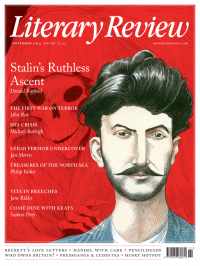Linda Porter
In Royal Company
The King’s Irishmen: The Irish in the Exiled Court of Charles II, 1649–1660
By Mark R F Williams
The Boydell Press 352pp £75
As a child, I listened entranced to a radio serialisation of David Scott Daniell’s historical novel Hunt Royal. Both the story and the accompanying music by Purcell were thrilling. This tale of Charles II’s escape after the Battle of Worcester, related by the king himself to his wife and courtiers, was full of romance and adventure, the very essence of what I imagined it must have felt like to be a Cavalier. After the Restoration, the story was carefully nurtured, not least by the king himself, though his own written version of it did not appear until after his death. No doubt in his lifetime it gained in the telling. But it studiously avoided any deeper reflection on his disastrously misjudged attempt to regain the three kingdoms he claimed to rule through an alliance with the Covenanters in Scotland, an attempt which had brought him to defeat in the heart of England in 1651. Nor did it reveal the frustrations and hardship of a second period of exile, when he became a wanderer dependent on the goodwill of France and then Spain. Support, both moral and financial, was in short supply. There had been, as his brother James later remembered, ‘nothing so rare as money’. Bickering advisers, an obstreperous mother and awkward siblings all added to his frustrations, even as the English Commonwealth grew stronger in Europe. There seemed to be no end in sight, despite his attempt to keep up the trappings of kingship – a court, a council, patronage. No wonder he felt the need to reinvent his past. So did many of those who stayed loyal to him through these difficult times, perhaps none more so than his Irish supporters, whose experiences are superbly brought to life in Mark Williams’s elegantly crafted first book.
The Irish Rebellion of 1641 precipitated a crisis in the affairs of Charles I that led to his direct confrontation with the English Parliament. He was, of course, already on the back foot following his trouncing by the Scots in the recent Bishops’ Wars. But events in Ireland, with the

Sign Up to our newsletter
Receive free articles, highlights from the archive, news, details of prizes, and much more.@Lit_Review
Follow Literary Review on Twitter
Twitter Feed
Under its longest-serving editor, Graydon Carter, Vanity Fair was that rare thing – a New York society magazine that published serious journalism.
@PeterPeteryork looks at what Carter got right.
Peter York - Deluxe Editions
Peter York: Deluxe Editions - When the Going Was Good: An Editor’s Adventures During the Last Golden Age of Magazines by Graydon Carter
literaryreview.co.uk
Henry James returned to America in 1904 with three objectives: to see his brother William, to deliver a series of lectures on Balzac, and to gather material for a pair of books about modern America.
Peter Rose follows James out west.
Peter Rose - The Restless Analyst
Peter Rose: The Restless Analyst - Henry James Comes Home: Rediscovering America in the Gilded Age by Peter Brooks...
literaryreview.co.uk
Vladimir Putin served his apprenticeship in the KGB toward the end of the Cold War, a period during which Western societies were infiltrated by so-called 'illegals'.
Piers Brendon examines how the culture of Soviet spycraft shaped his thinking.
Piers Brendon - Tinker, Tailor, Sleeper, Troll
Piers Brendon: Tinker, Tailor, Sleeper, Troll - The Illegals: Russia’s Most Audacious Spies and the Plot to Infiltrate the West by Shaun Walker
literaryreview.co.uk